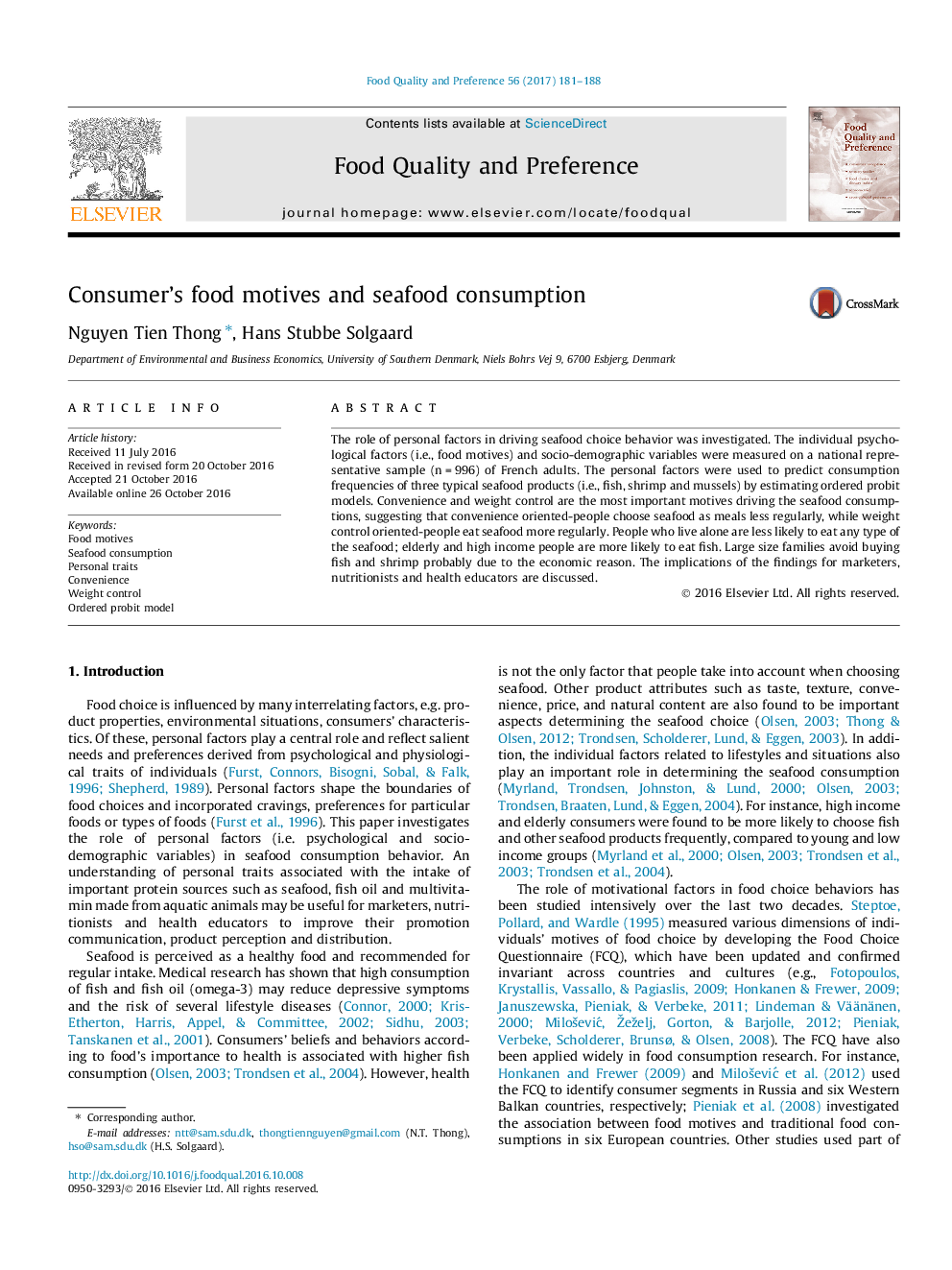| Article ID | Journal | Published Year | Pages | File Type |
|---|---|---|---|---|
| 6481976 | Food Quality and Preference | 2017 | 8 Pages |
â¢Nine consumers' food motives were measured by 27 items in a representative sample of 996 French adults.â¢Ordered probit models were estimated, using both psychological factors and socio-demographic variables.â¢Most personal factors are significant predictors of the consumption at least one of three seafood products.â¢Convenience and weight control are the most important psychological factors driving seafood consumption.
The role of personal factors in driving seafood choice behavior was investigated. The individual psychological factors (i.e., food motives) and socio-demographic variables were measured on a national representative sample (n = 996) of French adults. The personal factors were used to predict consumption frequencies of three typical seafood products (i.e., fish, shrimp and mussels) by estimating ordered probit models. Convenience and weight control are the most important motives driving the seafood consumptions, suggesting that convenience oriented-people choose seafood as meals less regularly, while weight control oriented-people eat seafood more regularly. People who live alone are less likely to eat any type of the seafood; elderly and high income people are more likely to eat fish. Large size families avoid buying fish and shrimp probably due to the economic reason. The implications of the findings for marketers, nutritionists and health educators are discussed.
